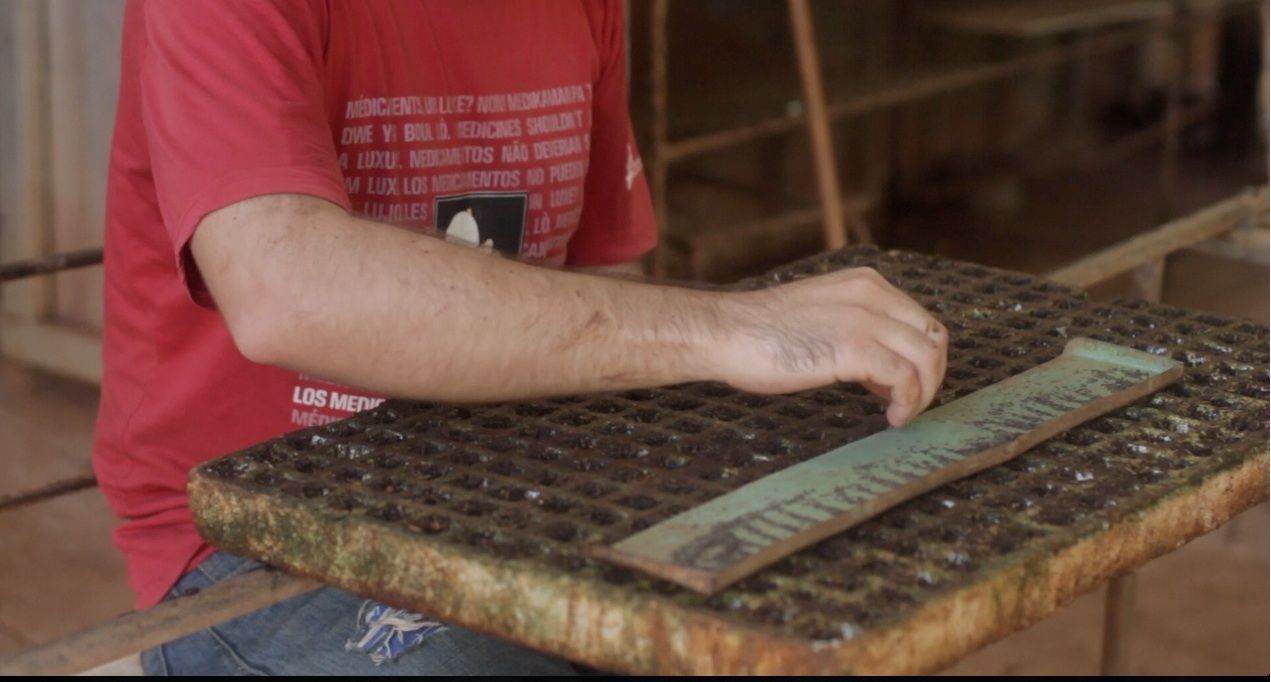One by one, Alejandro Rivera poked tiny lettuce seeds into planters. They were hardly the size of poppy seeds and he moved slowly, deliberately. A group of women with elaborately painted nails sat nearby and moved much more quickly, almost as rapidly as they spoke, but he was in no rush to catch up. He was new, still learning.
“I’m a dentist,” he said, laughing. “I began farming just for my free time, on the roof.” Rivera is from Mexico and is one of the many foreigners who visit Organoponico Vivero Alamar, just outside Havana, Cuba, each year. Many visit the farm for fun as part of tour programs, but others, like Rivera, go there specifically to soak up the knowledge and bring it back home.
OVA hosts international conventions and is the subject of countless blog posts and web documentaries about sustainable and organic agriculture. The farm is a cooperative, allowing workers to hold profit shares based on the number of years they have worked.
Rivera has been gardening on his rooftop because his city, Monterrey, is too crowded for a traditional garden, but he said he is hoping to turn his hobby into something more. He heard about OVA through a documentary he saw online and was surprised when some of the farm’s leaders immediately agreed to let him visit for two weeks and learn how to establish a cooperative just like theirs.
“Sometimes you find people with their knowledge – there’s a lot of selfishness, you know,” he said. “They want to keep it. People here, they share, they share all of it.”
Rivera spent a little bit of time in every area of the farm, where workers taught him germination processes, how to make compost and how to effectively rotate crops, among other things. They were willing and happy to share their experience.
Government employees in Cuba earn very meager wages – about $12 a month is the norm – and many have second or third jobs to support their families. As a private organization, OVA is able to offer salaries roughly three times the amount an individual could earn working for the government. OVA also provides benefits to its workers beyond its relatively high salaries. Aside from wages and profit shares, employees have a shorter work day than most Cubans, are provided lunch, can take home food for each day they work, have free haircuts and manicures and can take out interest-free loans. Rivera said he liked the emphasis the business placed on the health and financial well-being of its workers, and he hopes to start a similar cooperative one day soon in Mexico.
“I think that’s the way that I would like to work,” he said. “Not to sell the product, but to provide food to my workers and their families, you know? And to regenerate community sense. . . What I’ve seen here is they’re like a family. They talk a lot – take care of each other a lot. There’s a high sense of community.”



